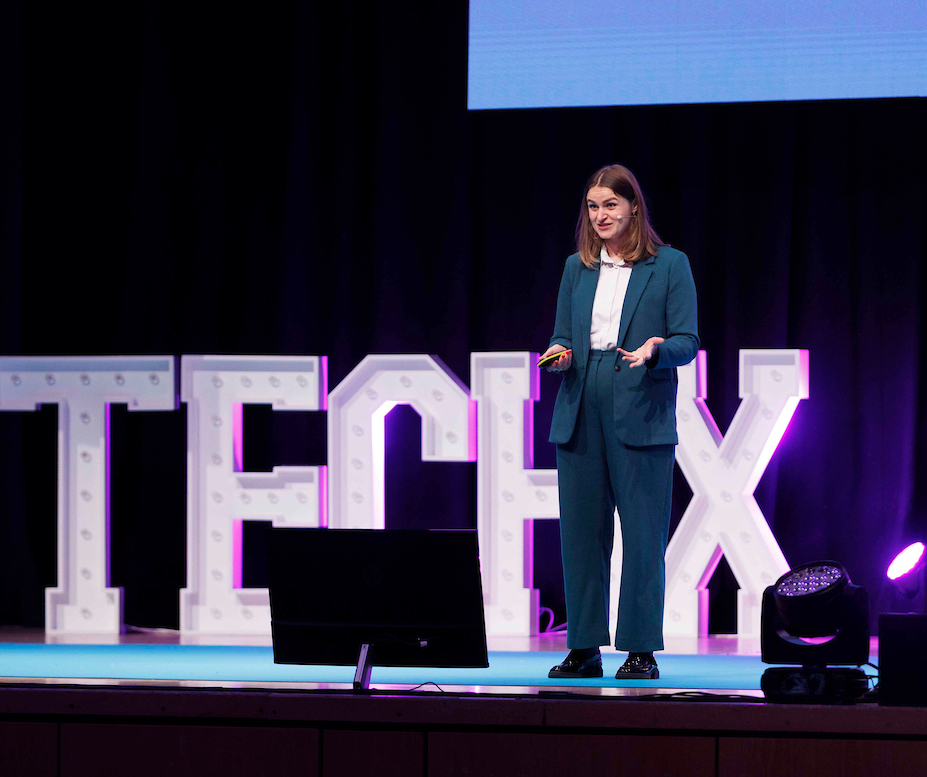
The prize, awarded by NZTC sponsor ConocoPhillips, is given to the startup with the most promising emissions reduction and commercial impact potential.
It comes as new figures highlight the center’s role in boosting the economy, supporting innovation and creating jobs across Scotland and the UK.
Held at Aberdeen’s Music Hall on May 29, the event marked the conclusion of this year’s 18-week TechX accelerator program.
Each of the graduating startups pitched their ideas to an audience of industry leaders, investors and tech experts. The event was also livestreamed to viewers worldwide.
This year’s group of 12 startups includes companies focused on greener fuels, digital tools for offshore energy, low-carbon hydrogen and new methods for capturing or cutting carbon emissions.
While Cambridge-based Remedium took the top prize, all participants will receive further support through TechX Growth, a two-year program offering co-working space, access to NZTC’s network of experts and investors, and its ecosystem partners.
Remedium’s technology, Limeloop, captures carbon dioxide from industrial processes such as cement and steel production – sectors that are especially difficult to decarbonize.
The system uses a custom-made synthetic limestone and a heat battery to trap more CO₂ at a significantly lower cost.
It promises to remove over 90% of emissions while producing high-temperature heat for industry, with the potential to reduce capture costs by more than 80 per cent compared to current methods.
The TechX program accelerates the development of clean energy solutions, providing a clear pathway to field trials, commercial partnerships and adoption.
Since its launch in 2017, TechX has supported 81 startups through its accelerator, with more than 1,300 companies applying to take part.
Companies supported by TechX – including its 2025 cohort – have created 380 jobs, attracted £160 million of equity investment and generated £36 million in revenue, with over 90% still thriving. Overall, NZTC has co-invested £420 million and delivered 1,550 jobs through its technology development and deployment projects.
This year’s other participants were:
AED Energy (London): Low-cost thermal batteries that store renewable energy as heat and use photovoltaic (PV) cells to deliver on-demand electricity and heat, supporting a clean, reliable energy system.
CGEN Engineering (Edinburgh): A lightweight, modular generator that cuts costs, simplifies maintenance, and boosts the efficiency of wind energy production.
EBB:FLOW (Inverness): A flexible, low-cost wave energy converter that uses scalable, mass-produced generator cells to make ocean power more affordable and reliable.
Entropyst (Glasgow): A reactor that transforms methane into ‘turquoise’ hydrogen and solid carbon nanotubes, offering a scalable, low-cost and compact solution for generating low carbon hydrogen.
Global OTEC (London): A system harnessing ocean temperature differences to provide reliable, low-carbon power for offshore operations, reducing fuel use, costs and emissions.
HotGreen (London): A modular compressor technology that cuts industrial heat pump costs and payback times by combining two mature manufacturing methods to deliver high efficiency.
Kondor (Edinburgh): A software platform using AI and digital twins to offer actionable insights, helping oil and gas operations enhance energy efficiency and cut emissions.
PEM Technologies (Gorebridge): A modular electrolyzer that simplifies design, eliminates rare earth elements, and ensures easy maintenance, reducing hydrogen production costs.
Plasma2X (Liverpool): Converts air and water into green ammonia using plasma and electrocatalysis, enabling sustainable fuel and fertiliser production without fossil fuels or CO₂ emissions.
Protonera (Cambridge): Transforms mixed and contaminated plastics into low-carbon hydrogen and recycled plastics at low temperatures, lowering the cost of green hydrogen production.
SOLead Energy (Southampton): Develops a safer, more sustainable soluble lead flow battery as an alternative to lithium-ion for long-duration energy storage.
Omid Saghafifar, Chief Executive of Remedium, said, “Winning the Climate Impact Prize is a real boost for our team. It recognizes the progress we’ve made and the potential of our technology to help cut emissions.
“The TechX program has helped us sharpen our thinking and move faster towards getting our solution into the hands of customers.
“This award comes at the right time for us. The funding will support the next phase of our development, whether that’s building partnerships, testing at scale or refining the technology. “We’re genuinely grateful to NZTC and ConocoPhillips for their backing and belief in what we’re building.”

